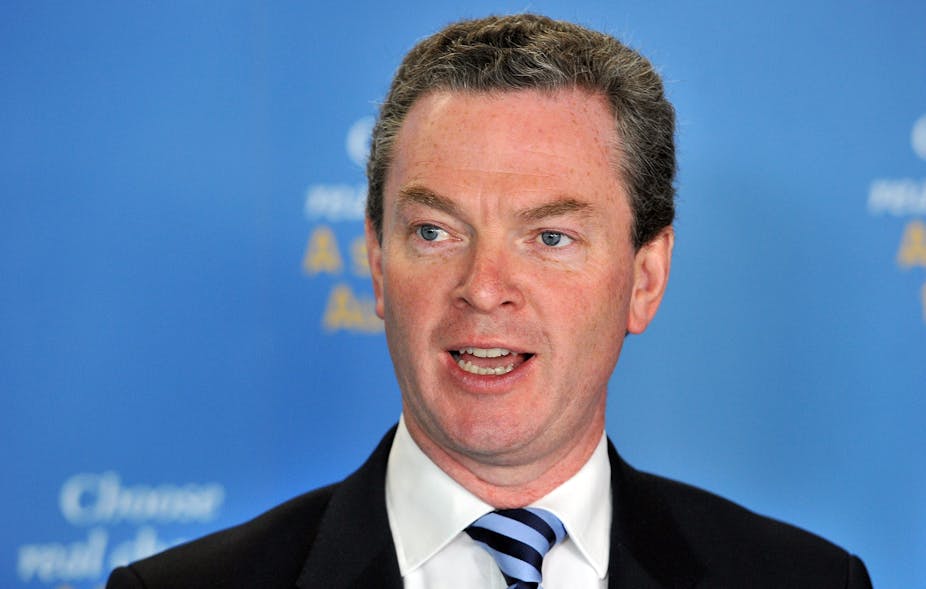There would be no change in the GST under an Abbott government, opposition frontbencher Christopher Pyne said tonight.
This was despite the GST being included in a Coalition government’s proposed taxation review.
The opposition policy is that any proposed changes to the tax system would be taken to the next election.
But Tony Abbott took a hard line against any alteration to the GST in Sunday’s debate and Pyne left no apparent let out when questioned on the ABC’s Q&A tonight.
He said the Coalition would not increase the rate or change the basket of goods covered. There would be “no change to the GST” under an Abbott government.
This was a political decision, he said; it did not mean that the taxation act should not be looked at in its entirety. The hard line will bring criticism from those who say broad tax reform is vital, and also means that a tax review would be effectively limited.
Meanwhile, an Australian National University poll has found the economy and jobs are seen as the most important issues facing the country, almost doubling as a concern of voters since 2010. In that period, people have become less focused on the environment and global warming.
Since the mining boom’s decline, the economy and jobs have become an increasing priority for people, the ANUpoll shows.
In mid-2010 the economy and jobs were mentioned by17% as the most important problem facing the country, increasing to 22% in late 2011, and increasing again in the current survey, to 30%. “Taking into account the 21% who mentioned it as the second most important issue, just over half of the survey respondents mentioned the economy and jobs as a priority.
"This approaches the level of public concern that ANUpoll recorded at the height of the global financial crisis, when around half of the respondents mentioned the economy as their first priority”.
The poll (of 1200 last month) comes as the economy is dominating the election campaign. Tomorrow the departments of Treasury and Finance release the Pre-election Economic and Fiscal Outlook.
Immigration, which included asylum seekers, was the second-ranked voter concern; it was mentioned by 15% as the most important problem facing the country and by another 13% as the second most important.
“Immigration has maintained a consistent presence as an issue among the public, varying between 12 and 20% over the post 2010-election period”.
“Better government ranked third. This first emerged as a concern for the public in early 2010. It was mentioned by13% in this year’s poll, down from 18% in late 2011.
The environment and global warming ranked fourth, mentioned by only 6%. "This represents a decline of about half since early 2010”.
Despite the fractious nature of politics, the country’s political mood remains generally positive although with some decline over the last two years.
“In line with the other AUSpolls conducted over the past two years, 12% say they are ‘very satisfied’ with the way the country is heading, and a further 44% are ‘fairly satisfied’.
"This proportion who are generally satisfied has remained constant since mid-2011. However, it represents a decline of around 10 percentage points from 2010, when almost two in every three considered themselves to be satisfied. This decline came at the time when ‘good government’ began to be mentioned as the most important problem facing Australia”.

